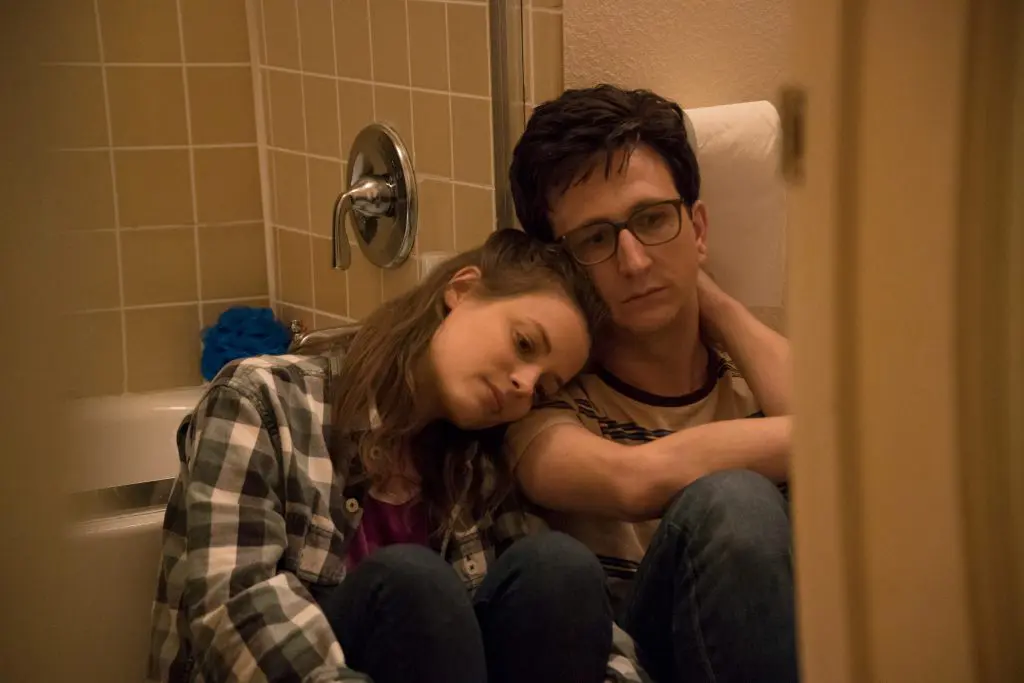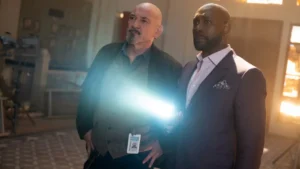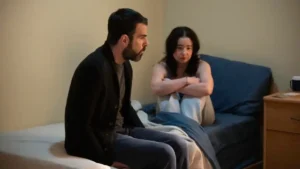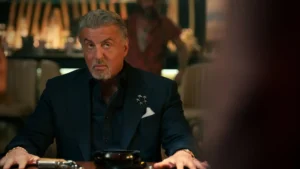Netflix Original Series Love returns for one last time. In season 3, Gus and Mickey pick up where they left off, tackling the trials and tribulations of their modern day relationship whilst their friend Bertie is trying to figure out her place in the world. The romantic drama is created by Judd Apatow and stars Paul Rust, Gillian Jacobs and Claudia O’Doherty and aired globally on Netflix on March 9 2018.
One of the reasons why Netflix Original series Love has struck hearts so easily is because the story does not confine itself to the bullshit tropes of fairytale relationships. Gus Cruikshank (Paul Rust) and Mickey Dobbs (Gillian Jacobs) are no Ross and Rachel, for the sake of an example. The Friends couple had a perfect group of friends, clumsy but successful career paths, and a straightforwardly constructed fairytale that stemmed from a goofy childhood crush. Judd Apatow’s Love recognises straight from the first season that the archetypal romance rarely happens. The series enforces the idea that in today’s technology-consumed society we are more likely to connect with someone with “unconventional” methods, like those thirsty-male apps that theoretically tells you if a certain individual is a match: “We both like pizza”. Gus and Mickey represent the new modern day romance that is not unrealistic and far from perfect. There was no prom, the odd glances at a party and an undying plea of love – they both found each in passionless circumstances. The relatable theme for the young hearts continues in season 3.
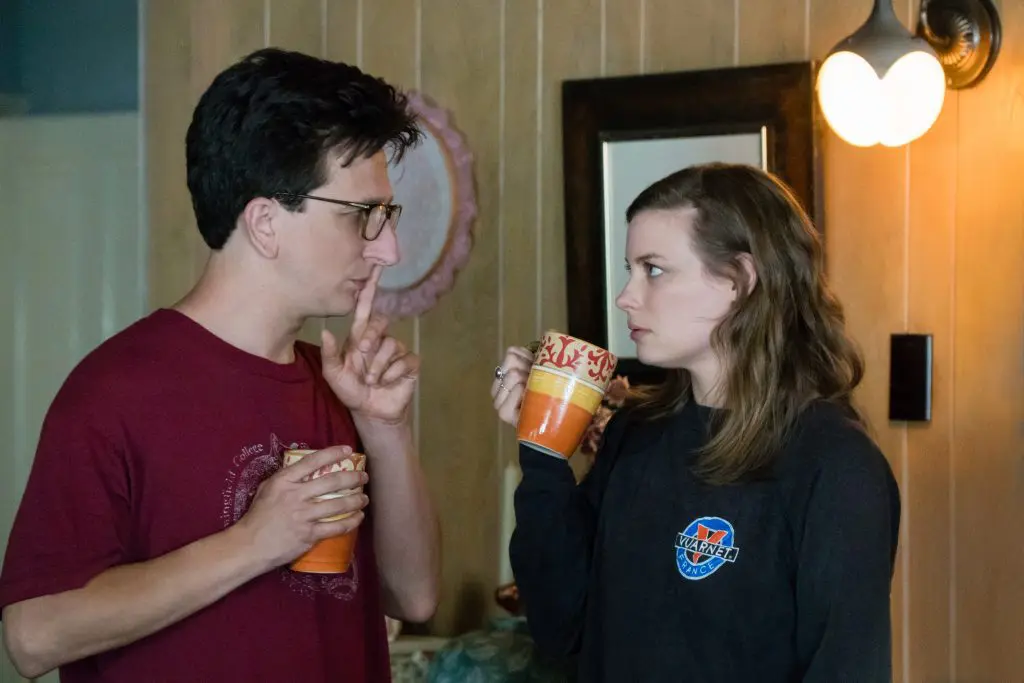
With the news that Netflix was not renewing Love, it is no coincidence that season 3 feels handcrafted for the wounded fans. Season one showed a comedy-drama based on young naive characters, aimlessly attempting to get a handle on their love life with problems forever circling them amongst the pressures of trying to make a career. Most plot points involving intimacy, commitment and dating usually ended up in embarrassment for a lead character, especially Mickey’s obvious personal problems. The niche take on modern romantic relationships felt like a breath of fresh air. This ultimately carried on to season 2, fleshing out the other characters like Bertie Bauer (Claudia O’Doherty), the Australian traveller trying to figure out her own broken down identity, whilst suffering what seemingly looks like an empty relationship.
Season 3, on the other hand, feels different for reasons that are obvious. The last 12 episodes celebrate the blossoming of a dysfunctional but loving relationship. This is the end, so naturally, you cannot help but cherish and savour Gus and Mickey. The quirky duo has been so convincingly and brilliantly written into the story that you do not want the drama to end. The customary cringe-worthy moments materialise where you are tempted to shun your binging eyes from the screen. Frustratingly, there are hair pulling moments where you want to put both characters in a room and scream at them. In the end, you are enjoying the end of a well-managed story about young people in love doing young, dumb things.
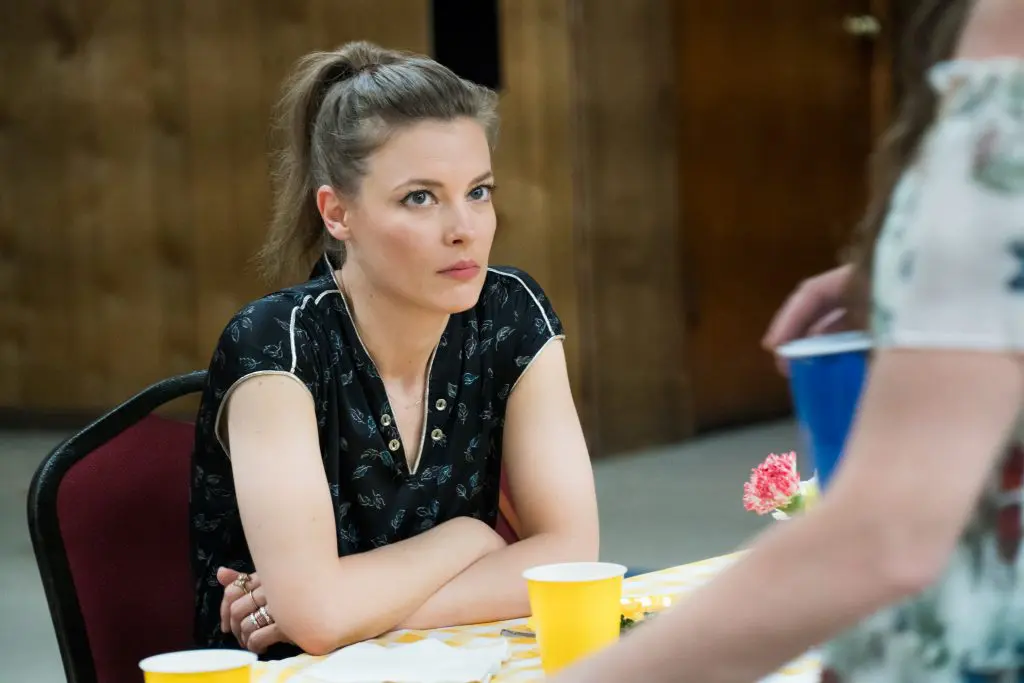
Gus is practically the same for the most part, a young man that suppresses his true feelings and is annoyingly polite to be around. The main test is ensuring he does not destroy the one situation he has clumsily managed to weld into his life – a loving relationship. Mickey, who is still tormented by her demons, appears to have a more mature approach to life for season 3, and with this, you initially witness a more adultlike relationship where two people are figuring out what they are about as a couple. Their onscreen progression is to be cherished, as it does feel to be unnaturally fast-paced due to the circumstance. Conclusions do come forth, and you just have to enjoy the ride.
The season does offer less significant episodes about their aspiring media careers, but in the grand scheme of the story, you could not care less. Does Gus finally become the writer he wants to be? Does Mickey hold down a job as a producer and stay away from the menacing alcohol? I guess those two questions do hold some importance, but Love season 3 understands completely that these plot points mask the eventual goal – a conclusion to Gus and Mickey. Their relationship encapsulates, in comedic fashion, the real truth behind a relationship, and that’s why Love will continue to be adored. Their onscreen chemistry feels natural as you enjoy how they work, laugh and argue together. The final season is almost a tribute to the two first-rate characters. Whereas in the first two seasons you enjoyed their clumsiness and almost pathetic looking drama, you enjoy their sagacious attempt to form a respectable relationship.
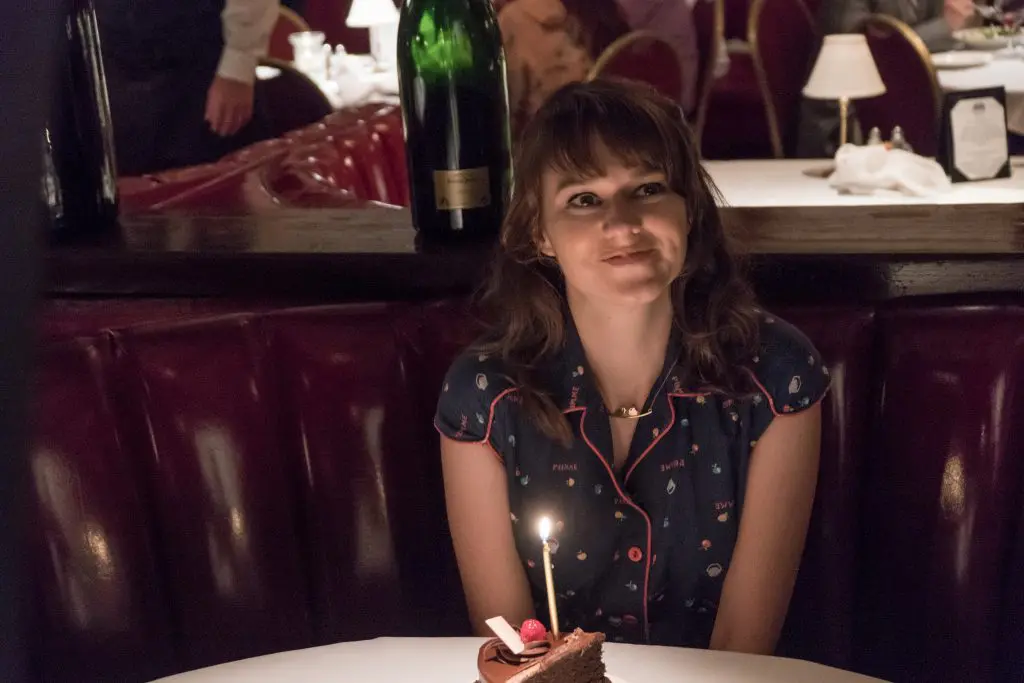
There is also on offer underlying plot points that have come to fruition, albeit a little too late. Bertie’s relationship with Randy is more exposed, showing fragments of a tired couple waiting for what seems inevitable. The additional plot points add real comedy to the story as Randy becomes amusingly exhausting as a character that he almost loses meaning. Chris, who has not been the most important influencer to the series, does walk into the fold with his dreams of becoming a stuntman. However, he is very much a convenient side story than a character with any impact. I guess this is where the problems lay. The other stories that Love wove brilliantly do not serve much use because unfortunately, it ended too early.
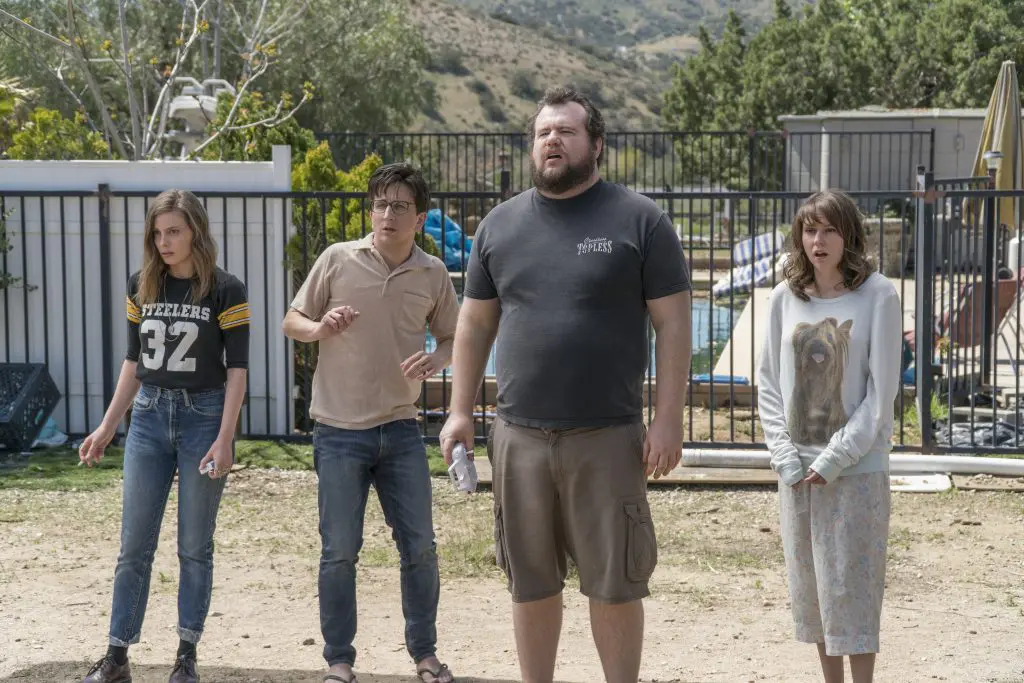
Season 3 will coax your enjoyment due to the usual factors of its predecessors. In most areas, the final 12 episodes are on par with the rest, but you cannot help but feel whether it was cut maybe a couple of seasons too short. With the ever-growing content of Netflix Originals, you have to take a guess that decisions need to be made, but Love feels slightly trigger happy in that you can almost sense the characters were not ready for it to close. The door is firmly closed shut, but by the time you depressingly reach the final episode, you have a story that could have lasted longer compressed, which will, unfortunately, leave you begging for more. The irony to all this is that when Love was first released I genuinely believed Gus and Mickey as two core characters could not work. I also believed the side stories and the other influencing characters would not lend any momentum, which was a serious misjudgement.
Netflix, you have made a mistake.

